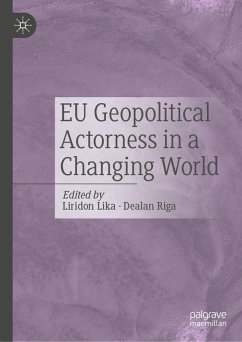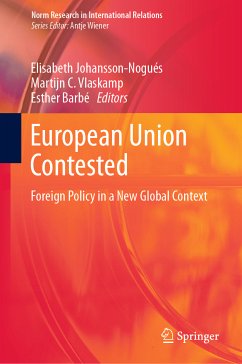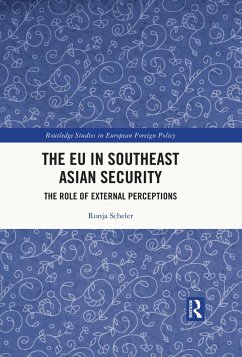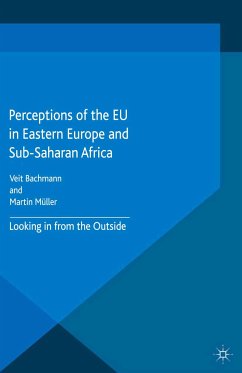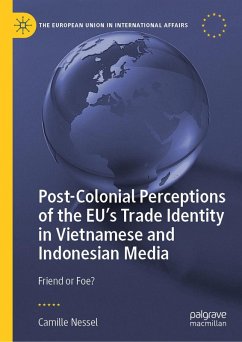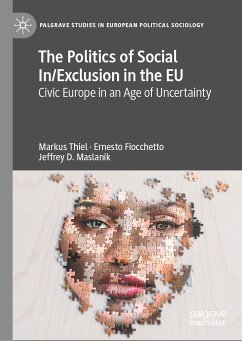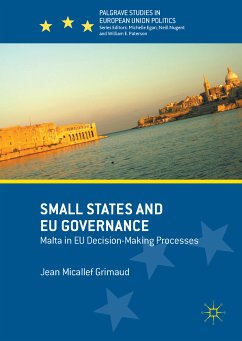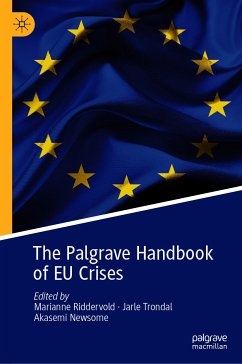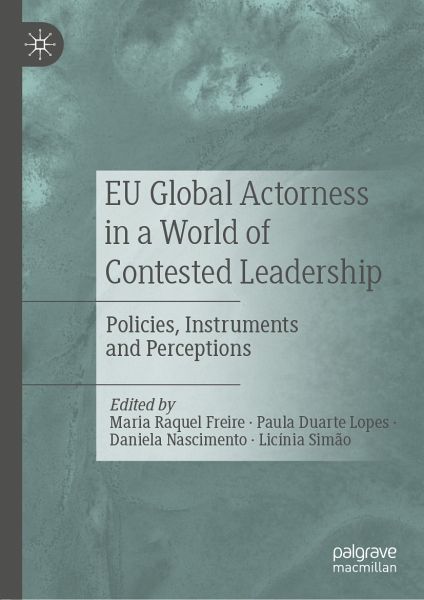
EU Global Actorness in a World of Contested Leadership (eBook, PDF)
Policies, Instruments and Perceptions
Redaktion: Freire, Maria Raquel; Simão, Licínia; Nascimento, Daniela; Lopes, Paula Duarte
Versandkostenfrei!
Sofort per Download lieferbar
104,95 €
inkl. MwSt.
Weitere Ausgaben:

PAYBACK Punkte
52 °P sammeln!
This book contributes to the literature on the EU's role in the international system by engaging with the debates on global actorness and mapping new conceptual and theoretical avenues to better understand how agency and power are exerted at the global and regional levels, in a context of increased contestation of the international liberal order. Organised around three main lines, the book first looks at how the EU positions itself internationally in different policy areas, providing a multi-dimensional reading of EU policies, instruments, and practices; secondly, it engages with the EU's own ...
This book contributes to the literature on the EU's role in the international system by engaging with the debates on global actorness and mapping new conceptual and theoretical avenues to better understand how agency and power are exerted at the global and regional levels, in a context of increased contestation of the international liberal order. Organised around three main lines, the book first looks at how the EU positions itself internationally in different policy areas, providing a multi-dimensional reading of EU policies, instruments, and practices; secondly, it engages with the EU's own perspective toward its regional contexts and with the perspectives of regional actors on the EU; and, thirdly, it explores non-European perspectives on EU actorness, as the way the EU is perceived by others in this system of contested leadership is central to how it is understood in terms of policies, instruments, and overall capability to lead and act as a global power.
Dieser Download kann aus rechtlichen Gründen nur mit Rechnungsadresse in A, B, BG, CY, CZ, D, DK, EW, E, FIN, F, GR, HR, H, IRL, I, LT, L, LR, M, NL, PL, P, R, S, SLO, SK ausgeliefert werden.



